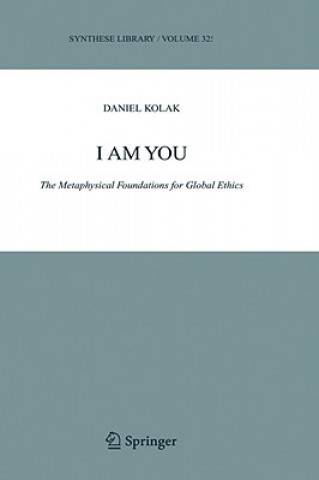
Kód: 01415972
I Am You
Autor D. Kolak
Borders enclose and separate us. We assign to them tremendous significance. Along them we draw supposedly uncrossable boundaries within which we believe our individual identities begin and end, erecting the metaphysical dividing w ... celý popis
- Jazyk:
 Angličtina
Angličtina - Vazba: Pevná
- Počet stran: 659
Nakladatelství: Springer-Verlag New York Inc., 2005
- Více informací o knize

9842 Kč

Skladem u dodavatele v malém množství
Odesíláme za 12-15 dnů
Potřebujete více kusů?Máte-li zájem o více kusů, prověřte, prosím, nejprve dostupnost titulu na naši zákaznické podpoře.
Přidat mezi přání
Mohlo by se vám také líbit
-

Multivariable Calculus with Applications
1977 Kč -

Big Book of Picross Hanjie Griddlers Nonograms
925 Kč -

Minecraft English Ages 7-8
177 Kč -

In Cold War Skies
829 Kč -

Hidden Witch
283 Kč -

From Lukov with Love
517 Kč -

It's Kind of a Funny Story
238 Kč -

The Scotch Gambit: An Energetic and Aggressive System for White
380 Kč -

First Hundred Years of the American Baptist Publication Society
974 Kč -

Sermons
884 Kč -

Sharpshooters of the American Civil War 1861-1865
607 Kč -

Lord of the Rings
1942 Kč -

Psychologia Kluczowe koncepcje Tom 1 Podstawy psychologii
422 Kč -

One Piece, Band 72
180 Kč
Darujte tuto knihu ještě dnes
- Objednejte knihu a zvolte Zaslat jako dárek.
- Obratem obdržíte darovací poukaz na knihu, který můžete ihned předat obdarovanému.
- Knihu zašleme na adresu obdarovaného, o nic se nestaráte.
Více informací o knize I Am You
Nákupem získáte 984 bodů
 Anotace knihy
Anotace knihy
Borders enclose and separate us. We assign to them tremendous significance. Along them we draw supposedly uncrossable boundaries within which we believe our individual identities begin and end, erecting the metaphysical dividing walls that enclose each one of us into numerically identical, numerically distinct, entities: persons. Do the borders between us physical, psychological, neurological, causal, spatial, temporal, etc. merit the metaphysical significance ordinarily accorded them? The central thesis of I Am You is that our borders do not signify boundaries between persons. We are all the same person. Variations on this heretical theme have been voiced periodically throughout the ages (the Upanishads, Averroës, Giordano Bruno, Josiah Royce, Schrödinger, Fred Hoyle, Freeman Dyson). In presenting his arguments, the author relies on detailed analyses of recent formal work on personal identity, especially that of Derek Parfit, Sydney Shoemaker, Robert Nozick, David Wiggins, Daniel C. Dennett and Thomas Nagel, while incorporating the views of Descartes, Leibniz, Wittgenstein, Schopenhauer, Kant, Husserl and Brouwer. His development of the implied moral theory is inspired by, and draws on, Rawls, Sidgwick, Kant and again Parfit. The traditional, commonsense view that we are each a separate person numerically identical to ourselves over time, i.e., that personal identity is closed under known individuating and identifying borders what the author calls Closed Individualism is shown to be incoherent. The demonstration that personal identity is not closed but open points collectively in one of two new directions: either there are no continuously existing, self-identical persons over time in the sense ordinarily understood the sort of view developed by philosophers as diverse as Buddha, Hume and most recently Derek Parfit, what the author calls Empty Individualism or else you are everyone, i.e., personal identity is not closed under known individuating and identifying borders, what the author calls Open Individualism. In making his case, the author: §offers a new explanation both of consciousness and of self-consciousness §constructs a new theory of Self §explains psychopathologies (e.g. multiple personality disorder, schizophrenia) §shows Open Individualism to be the best competing explanation of who we are §provides the metaphysical foundations for global ethics. §The book is intended for philosophers and the philosophically inclined physicists, mathematicians, psychiatrists, psychologists, linguists, computer scientists, economists, and communication theorists. It is accessible to graduate students and advanced undergraduates.
 Parametry knihy
Parametry knihy
Zařazení knihy Knihy v angličtině Humanities Philosophy Philosophy: metaphysics & ontology
9842 Kč
- Plný název: I Am You
- Podnázev: The Methaphysical Foundations of Global Ethics
- Autor: D. Kolak
- Jazyk:
 Angličtina
Angličtina - Vazba: Pevná
- Počet stran: 659
- EAN: 9781402029998
- ISBN: 1402029993
- ID: 01415972
- Nakladatelství: Springer-Verlag New York Inc.
- Hmotnost: 2490 g
- Rozměry: 297 × 210 × 41 mm
- Datum vydání: 05. January 2005
Oblíbené z jiného soudku
-
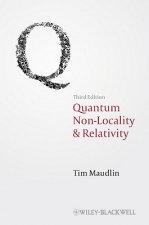
Quantum Non-Locality & Relativity - Metaphysical Intimations of Modern Physics 3e
1257 Kč -

Convoluted Universe: Book One
468 Kč -
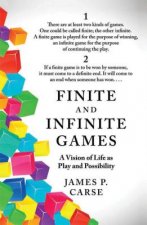
Finite and Infinite Games
407 Kč -
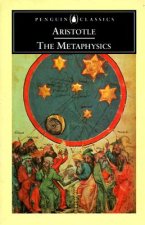
Metaphysics
327 Kč -

Being and Time
464 Kč -

Life Of The Mind
561 Kč -

Neville Goddard
748 Kč -

Sum
247 Kč -

Scholastic Metaphysics
655 Kč -
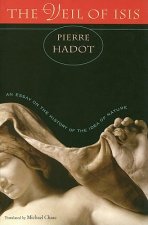
Veil of Isis
706 Kč -

Body in Pain
449 Kč -
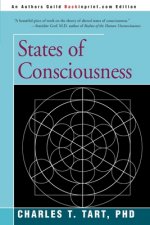
States of Consciousness
414 Kč -

Encyclopedia of Time
12649 Kč -

Chiropractic Text Book
1008 Kč -

Austrian Subjectivism & the Emergence of Entrepreneurship Theory
563 Kč -

Idea of the World, The - A multi-disciplinary argument for the mental nature of reality
454 Kč -

Why Materialism is Baloney
395 Kč -

Rationalist Spirituality - An exploration of the meaning of life and existence informed by logic and science
306 Kč -
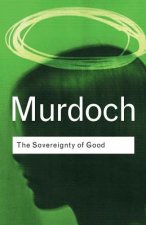
Sovereignty of Good
442 Kč -
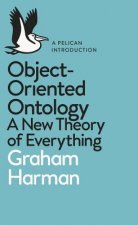
Object-Oriented Ontology
323 Kč -
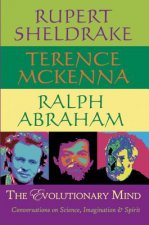
Evolutionary Mind
394 Kč -

Beyond Biocentrism
362 Kč -

Logic Manual
435 Kč -

Problems of Philosophy
289 Kč -
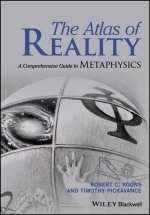
Atlas of Reality: A Complete Guide to Metaphys ics
1305 Kč -

Scent of Time - A Philosophical Essay on the Art of Lingering
451 Kč -
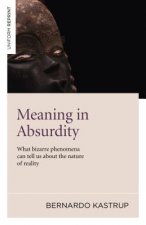
Meaning in Absurdity - What bizarre phenomena can tell us about the nature of reality
356 Kč -
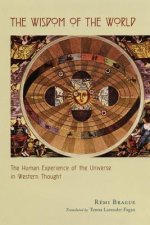
Wisdom of the World
1065 Kč -
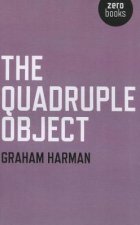
Quadruple Object, The
356 Kč -
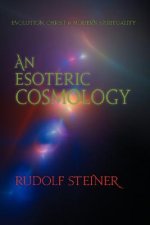
Esoteric Cosmology
472 Kč -
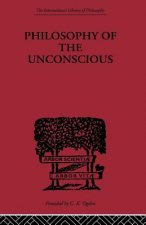
Philosophy of the Unconscious
1724 Kč -

Brief Peeks Beyond - Critical essays on metaphysics, neuroscience, free will, skepticism and culture
395 Kč -

Secret Doctrine of the Rosicrucians
554 Kč -

Being Ecological
323 Kč -

De Anima (On the Soul)
303 Kč -
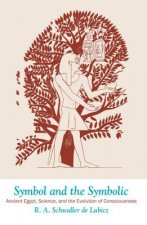
Symbol and the Symbolic
328 Kč -
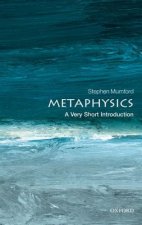
Metaphysics: A Very Short Introduction
268 Kč -

What Is Philosophy for?
624 Kč -
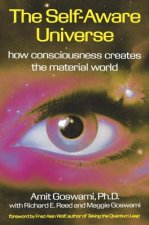
Self-Aware Universe
456 Kč -

Tertium Organum
419 Kč -

Human Animal
2485 Kč -
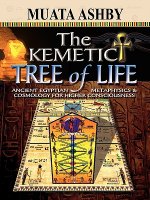
Kemetic Tree of Life Ancient Egyptian Metaphysics and Cosmology for Higher Consciousness
579 Kč -
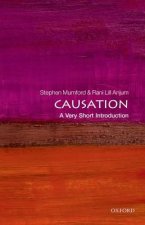
Causation: A Very Short Introduction
250 Kč -

Golden Chain of Homer
524 Kč -

Divine Blueprint
651 Kč -

Coming Full Circle
610 Kč -

Quantum Ontology
1678 Kč -

Nobility of Spirit
408 Kč -
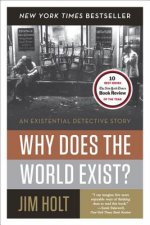
Why Does the World Exist?
442 Kč
Osobní odběr Praha, Brno a 12903 dalších
Copyright ©2008-24 nejlevnejsi-knihy.cz Všechna práva vyhrazenaSoukromíCookies


 Vrácení do měsíce
Vrácení do měsíce 571 999 099 (8-15.30h)
571 999 099 (8-15.30h)